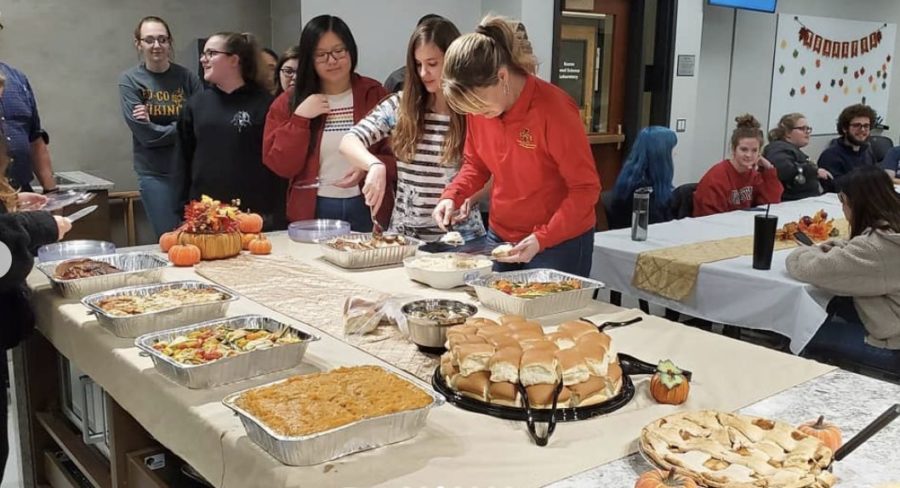Culinary Science Club works to educate community on food science
January 31, 2020
The Culinary Science Club discusses food-related world happenings, networks with industry professionals and enjoys a community-style meal every other Tuesday night in the Culinary Innovation Center.
They feed their attendees at every meeting with a meal related to the meeting’s theme. Their most recent theme was “Wings and Things” in a nod to Sunday’s football game, where executive team members cooked wings for the club.
While the club focuses its meetings on culinary science, they encourage non-majors to join.
Sara Siebrecht, senior in culinary food science, heads the club as the president and places great emphasis on their outreach.
“This semester, we really want to be outward-facing,” Siebrecht said. “[Something] we’re doing is handing out pamphlets about the major itself because it seems that a lot of people don’t find this major until their second or third year. We want to allow them that opportunity earlier, if possible.”
While the largest percentage of their members are within the department, they also have members majoring in forestry, construction engineering, horticulture and others.
Culinary science, the club and the major, began in 2009 with an original eight members, and the club grew to its now regular attendance of 30 to 40 members.
Erica Beirman, associate teaching professor of food science and human nutrition, is the adviser of the Culinary Science Club. While expanding their club is encouraging, Beirman said she loves seeing her advisees grow.
“For our general members, once they get a little involved, they’re hooked,” Beirman said. “I think it’s because they realize that it’s a nice community that everybody enjoys, and food — talking about food and learning about food — is fun.”
More than fostering personal connections, the club attempts to incorporate the greater Iowa State community through hosting and volunteering at various events.
One of their most popular is Culinary Boot Camp, a twice-a-year event intended to educate faculty and students on culinary skills. This four-week experience demonstrates how to make salsas, omelettes, chilis, grilled cheeses and teaches basic knife skills.
For students, these skills are critical. The 50 spots available this spring filled within 90 minutes of the mass email being sent to campus, Beirman said.
Although outreach is a main theme for the club, they also bring internships and employment recruiters to meetings to develop the students’ network. Beirman said she believes this is one of the most positive aspects of the club.
“The best part of the club is watching our students go off and do awesome things and being able to come back and show our current students what they’ve done,” Beirman said.
The Culinary Science Club meets from 5:45 p.m. to 7 p.m. every other Tuesday in the Culinary Innovation Center in the Food Sciences Building. The club has an Instagram page, where they post about their weekly meetings, events and dishes cooked by their members.
“A lot of what we’re doing is educating the public about who we are and what we do,” Siebrecht said. “We want people from outside the major to come in. We want to show you food science.”







